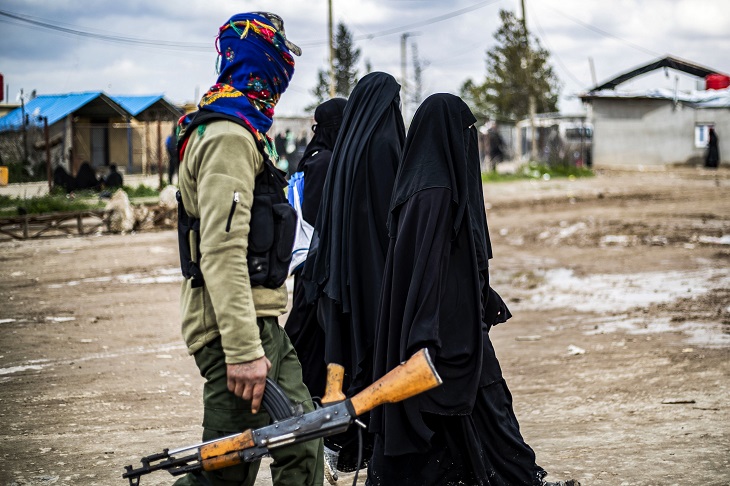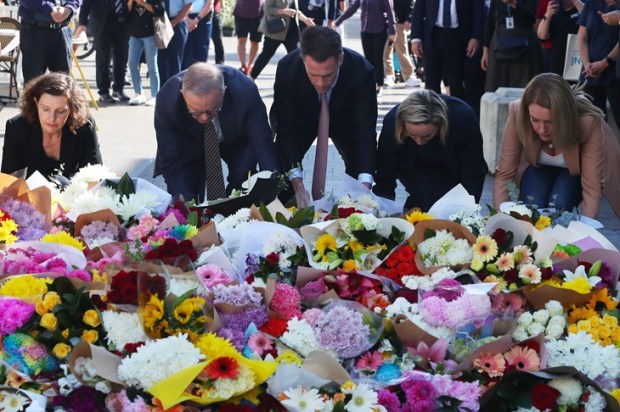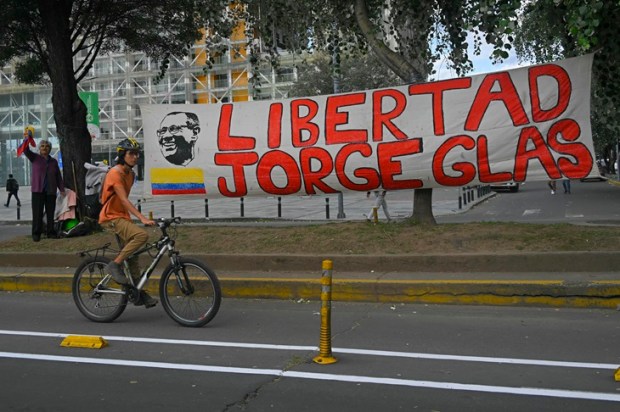The threat of terrorism is returning to Australia.
The impending release of convicted terrorists at the end of their sentences, and the return of family detainees from camps in Syria, produce two sources of potential peril for this country.
The recent lull in terrorist activity in this country does not indicate the problem has gone away; we are reminded of the existential threat by the 20th anniversary of the Bali bombing.
Despite the appalling record of worldwide terrorist activity, numbers of deaths remained relatively small in the 1970s, became more significant in the 1980s at between 5 and 10,000 per year, and remained at those levels (the World Trade Centre bombing, with 3,000 deaths, was on September 11, 2001, leading to the US ‘War on Terror’), and only started to climb around 2011.
An ongoing survey of Islamic terrorist violence was started following the 9/11 attacks. By July 2019, it had recorded over 35,000 attacks in nearly 70 countries.
Terrorist killings peaked at over 40,000 in 2014, with 93 countries involved, declining to 28,000 by 2019 in over 8,000 attacks. The outbreak of terrorism continues to be religion based, with Islamic fundamentalists spreading violence throughout the world and accounting for 95 per cent of attacks and deaths within three areas – the Middle East (with Afghanistan, Iraq, Syria, Somalia, and Yemen major hotspots), spreading to Africa, and South Asia.
Four terrorist groups were responsible for three quarters for the attacks: Islamic State, Boko Haram, the Taliban, and al-Qaeda. Apart from 9/11, terror attacks in America have fallen steadily since the 1970s and now deaths average around 50 per year – compared with 100 per day killed on the roads.
Fundamental to this activity is the role of Jihad, which many devout followers of the text believe is demanded of all Muslims. This means waging war against non-Muslims to make all peoples and countries submit to Islam. It is not the only interpretation of the text, but it is certainly shared by many.
A world in which the terrorist view of Islam prevails means an end to all other religious freedom, free speech, free press, democracy, women’s rights, music, art – all as dictated by Sharia Law. In its stead we can expect enslavements, amputations, beheadings, stoning, and crucifixions that are seen in terrorist-held states.
Al Qaeda was the most prominent Sunni terrorist group. Formed in the late 1980s by wealthy Saudi citizen Osama Bin Laden to fight against the Soviet invasion of Afghanistan, it amalgamated with other small groups and rapidly expanded its training there to tens of thousands from all parts of the world. It was initially supported by the local Taliban government and declared a holy war against the United States. Much of its activity has also been focused on its Shiite competitors, in an echo of the Catholic/Protestant battles of 500 years before.
After several attacks in distant parts of the world, it carried out the September 11th, 2001 destruction of the New York trade Centre. This event resulted in the invasion of Afghanistan and an ongoing conflict and instability to this day; with the US withdrawal, the likelihood that the Taliban would regain control has become a reality.
In 2005, Al Qaeda also carried out the London bombings which killed and injured several hundred, and the assassination of Prime Minister of India, Benazir Bhutto in 2007. The Paris ‘Charlie Hebdo’ attack in 2015 was also under the auspices of Al Qaeda.
Through its subsidiaries, Shiite Iran is now involved in attacks, not only against the West, but its alternative Sunni religious competitors. It has sponsored instability in Yemen, Iraq, and Syria as well as Palestine.
In Africa, Boko Haram is the offshoot of the Sunni Islamic State. Since 2002, it continues a campaign of kidnapping and murder in Nigeria and neighbouring Central African countries, resulting in an estimated 8,000 thousand deaths in 2020. In Indonesia and neighbouring countries, Jemaah Islamiyah has for nearly 30 years waged a similar campaign, a campaign which involved Australians in the 2002 Bali bombing.
In Iraq, several groups vie for control, including the now heavily reduced Islamic State (ISIS or ISIL). This Sunni organisation split from Sunni Al Qaeda in 2014, at one stage it controlled swathes of Northern Iraq and Syria. The Yazidi Kurdish minority, with their own religion, was singled out for particularly brutal treatment by ISIS. Apart from the Iraqi government, its other foe was the Kurdish-based, Communist-inspired, PKK which is an ethnic group that also spreads into Syria, Turkey, Iran, and Armenia, with an independence-based ideology. The Southern part of Iraq is predominantly Shia, with support from next door Iran; the USA is still trying to extricate itself from this ongoing instability.
The conflict in Syria is even more complicated with Iran, Russia, and Hezbollah supporting the Al Assad government with its Shia President. ISIS was forced out of Iraq and Syria but continues to be involved in the conflict in Lebanon. Also involved in the ongoing conflict is a separate group, the Al Nusra Front, another Sunni group formed in 2012 to overthrow the government of Syria. Complicating still further another group, the Syrian democratic forces are supported by the US, there are also Turkish forces on the Syrian border to prevent the PKK from forming a separate Kurdish state.
Closer to home, moderate Muslim Indonesia has seen a conflict between the sectarian government and the Al Qaeda-aligned Jemaah Islamiyah. The Bali bombing in 2002 resulted in 204 deaths, including 88 Australians; more recent terrorist activity has been through offshoots of ISIS.
A poll in 2006 in Indonesia showed that 58 per cent believed adulterers should be stoned to death; similar surveys in other Muslim countries have shown between 70 and 90 per cent believe apostasy demands the death penalty – perhaps not so moderate. The recent release from prison of the spiritual head of Jemaah Islamiyah, in Indonesia, has reminded Australia of the lives lost in the Bali bombing.
Even totalitarian China is not immune to terrorism. Despite their suppression of harmless groups like Falun Gong and Christianity, they have had problems with the Muslim Uighurs. This Sunni minority have been locked in ‘re-education’ camps and used as slave labour; they have retaliated by forming the Turkistan Islamic Movement, recognised internationally for carrying out some 200 terrorist acts in an attempt to gain independence for their region.
The Muslim population in many European countries has increased in recent years, with a wave of over 2 million refugees flooding into the EU in 2015. The majority ended up in Germany where control has become problematic with an estimated 30,000 supporters of terrorist activity. France has the highest number of Muslims of any European country at over 5 million; it has suffered a string of attacks in recent years, directed or inspired by ISIS. Since that influx there have been 38 attacks in Europe, with 170 dead and 840 wounded. There has also been an increase in crime and, inevitably, a rise in anti-Semitic attacks. The current World Muslim population of 1.7 billion is estimated to rise to 2.8 billion by 2050.
The failure in Afghanistan has revealed, not only the weakness of the West in attempting to impose democracy, but the potential resurgence of terrorism as the Taliban regained control. There is now conflict between ISIS and the Taliban but, with the weaponry left behind by departing forces, there is the potential to export extremism to neighbours and other parts of the world.
In Australia there have been 19 documented terrorist attacks in 50 years, 7 Islamic attacks have occurred in the last 10 years, with 6 deaths. A balance between freedom of expression and incitement to violence needs to be made. Perhaps Sharia law also needs to be examined in this context; a major unaddressed concern being that the religion of peace (as has happened many times before) will threaten the lives of those who speak out against it.
The left-wing emphasis on potential right-wing extremism needs to be put in the context of Islam’s goal of world domination as held by sizeable radical groups with powerful online conversion skills. Over the centuries Islam has been responsible for the deaths of an estimated 60 million Christians, 80 million Hindus, and 10 million Buddhists during its caliphates; academics (who don’t read history) cannot claim that Christianity can compete with that record.
Those religious extremists and terrorists who took up Islamic Jihad abroad, and had dual citizenship, had their Australian citizenship removed; disturbingly the High Court ruled that this was unconstitutional and they have the right to return; this precedent has yet to be appealed. Other countries, such as Denmark, have used this approach to prevent repatriation.
The plan to return wives and children of terrorists will be portrayed as posing little threat to the country; in reality, many of, the so far only 16 wives and 42 children, will have been inculcated with the philosophy of Jihad in their prison camps, (but all ‘regret their actions’ in travelling to the Middle East); they may pose a significant risk, a risk unlikely to be resolved by counselling.
The release of 21 jailed terrorists at the end of their sentences is even more problematic, with rehabilitation programs so unsuccessful that prisoners have had to be moved to alternative locations to prevent their radicalisation of others. Apart from the cost, ASIO cannot possibly monitor these individuals 24 hours a day forever; these developments will be a threat to us all.
Legislation needs to be urgently revised to deal with these dangers; the priority has to be society’s safety rather than concerns about individual rights. We should remember the loss of innocence in Bali of 20 years ago.
Got something to add? Join the discussion and comment below.
Get 10 issues for just $10
Subscribe to The Spectator Australia today for the next 10 magazine issues, plus full online access, for just $10.


























Comments
Don't miss out
Join the conversation with other Spectator Australia readers. Subscribe to leave a comment.
SUBSCRIBEAlready a subscriber? Log in